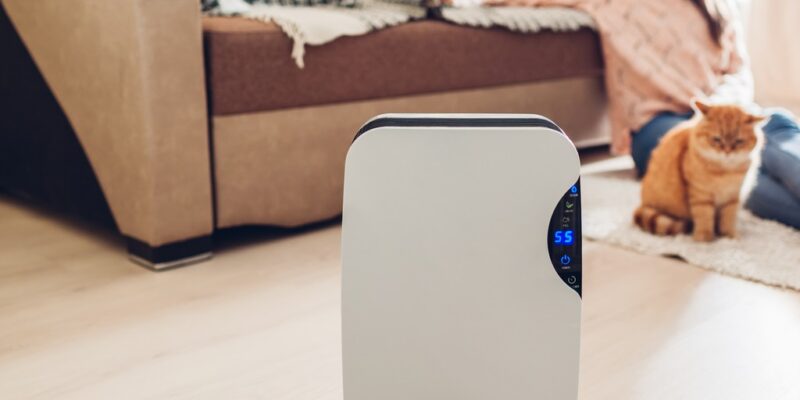Air purifiers are increasingly becoming a staple in homes, particularly for those looking to improve indoor air quality and promote a healthier living environment. These devices work by filtering out contaminants from the air, such as dust, pollen, pet dander, and harmful pollutants, providing cleaner air to breathe. With a range of benefits, air purifiers can significantly enhance the comfort and health of your home.
Why Indoor Air Quality Matters
Indoor air quality is crucial to maintaining good health, as people spend a large portion of their time indoors. The air inside your home can often be more polluted than the air outside due to enclosed spaces and the accumulation of allergens and chemicals. Poor indoor air quality can lead to respiratory issues, allergies, and exacerbate conditions like asthma. For those with sensitivities, clean air is essential in avoiding these problems.
How Air Purifiers Work
Air purifiers operate by drawing air through filters that capture particles and pollutants, then releasing clean air back into the room. The most common filters used in air purifiers are HEPA (High-Efficiency Particulate Air) filters, which are known for trapping 99.97% of airborne particles as small as 0.3 microns. Some purifiers also include activated carbon filters to absorb odors and volatile organic compounds (VOCs).
Key Benefits of Using an Air Purifier
Allergy Relief: Air purifiers can help reduce common allergens like dust mites, pollen, and pet dander, providing relief to allergy sufferers. By removing these particles from the air, purifiers help reduce allergy symptoms such as sneezing, coughing, and itchy eyes.
Asthma Symptom Control: For individuals with asthma, air purifiers are a valuable tool. They filter out irritants and airborne triggers like smoke, dust, and mold spores, helping to prevent asthma attacks and promote easier breathing.
Reduction of Harmful Pollutants: Air purifiers are effective in removing harmful pollutants such as tobacco smoke, VOCs, and chemicals from household cleaning products. These pollutants can contribute to long-term health risks, and by reducing their presence in the air, purifiers help create a safer living environment.
Neutralizing Odors: Whether it’s cooking smells, pet odors, or musty scents, air purifiers with activated carbon filters can absorb and neutralize unpleasant odors, leaving your home smelling fresher.
Improved Sleep Quality: Clean air can contribute to better sleep. Air purifiers help eliminate irritants that can disrupt your sleep, such as dust, pollen, and pet dander. Many air purifiers also operate quietly, making them suitable for use in bedrooms.
Choosing the Right Air Purifier for Your Home
When selecting an air purifier, it’s important to consider factors like room size, filter type, and specific air quality needs. For larger rooms, a higher-capacity air purifier may be necessary to ensure adequate filtration. If allergies or asthma are a concern, choosing a purifier with a HEPA filter is recommended.
Additionally, look for purifiers with added features such as air quality sensors, multiple fan speeds, and smart controls for better convenience and performance.
Maintenance and Care
To ensure your air purifier continues to function effectively, it’s important to regularly clean or replace the filters as recommended by the manufacturer. Neglecting filter maintenance can reduce the purifier’s efficiency and lead to poor air quality.
An air purifier is a valuable investment in maintaining a healthy home environment. By filtering out pollutants, allergens, and odors, air purifiers provide cleaner air, which can lead to better health, improved comfort, and enhanced overall well-being for you and your family.











Comments